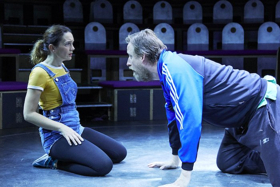Guest Blog: Ed Edwards On THE POLITICAL HISTORY OF SMACK AND CRACK
.jpg)
I was politically active in the late 1980s and personally witnessed the dying away of the political spark on the streets of Manchester in the wake of the nationwide inner-city uprisings of 1981-85.
One day, around 1987, I was asked by a Moss Side street dealer if I "wanted anything to smoke" as I passed. I knew the guy faintly from my younger cannabis-smoking days when we bought a "five-pound draw" if we couldn't buy resin from our usual sources.
Instead of the usual five quid's worth of "sensi", though, the lad proffered several bags of brown heroin. By then, you couldn't buy "a draw" on the streets of Moss Side. The miners were defeated, Winston Silcott, Mark Braithwaite and Engin Raghip had been framed for the killing of PC Blakelock during the Tottenham uprising, Viraj Mendis was soon to be deported to Sri Lanka after a police raid on the inner-city church in Manchester where he sought sanctuary, and there was nothing anyone could do about it. Heroin was everywhere by then, and the cops had a free hand.
The vanishing of street politics and the flood of hard drugs into the cities never felt like a coincidence to me, and when my own drug problems took off in the dead years that followed those historic defeats, I found myself doing three-and-a-half years in jail for drugs offences.
On the landing one night, a white lad from working-class Huyton put it like this: "We took Liverpool that night - the city belonged to the youth that night. The cops had to fight their way back into Liverpool. Next thing I'm jumping over the counter at the offie with an Uzi tryna feed a habit!"

All these years later, I'm a recovering addict of many years' sobriety - part of a worldwide 12-step movement - and that lad's words have found their way into the heart of my play. I wonder if he's still alive; there's a very good chance he isn't. Saving his words feels like a small victory.
A couple of years ago, I realised that the young people I was teaching in a drama school had a thirst for political knowledge beyond what was available in the mainstream media. I offered to give them some lectures on revolution. I listed some subjects on the board and straightaway 'The Political History of Smack and Crack' was a hit.
I felt almost obliged to write it up as a play, and the more I investigated the subject, the more the long-standing link between counter-revolution and narcotics became apparent. Unfortunately, I didn't find it possible to get all my historical discoveries into the script itself. Witnesses to early drafts fed back that the deeper political history sounded interesting but hard to absorb in that much detail - after all, a play has to follow the rules of dramatic structure and entertainment.
So the play now mainly revolves around a messed-up love story between two old friends from the drug days trying to get clean in the here and now, while the political history sticks to the flood of Contra/Mujahidin narcotics hitting Britain at that dangerous moment for capitalism in 1981 when mass inner-city uprisings occurred in the face of world forces that could so easily have tipped away from Thatcher and her neoliberal cronies.
The publisher of the playscript - Nick Hern Books - were more than open to including the historical detail we couldn't get in the play in an essay entitled 'Narcotics and Counterrevolution'. I like to think of this as a nice hybrid.
The Political History of Smack and Crack at Soho Theatre 4-22 September
Photo credit: The Other Richard
Comments
Videos

